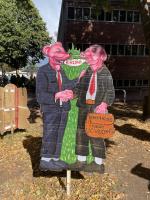post-colonialism
Articles tagged with post-colonialism
Tag Archive
- 9/11
- academic knowledge
- African Contemporary Art
- african culture
- African lands
- African photography
- african screens
- Afro-Caribbean
- Alcindo Monteiro
- Alexandra Lucas Coelho
- Ana Paula Tavares
- angola music
- António Pinto Ribeiro
- As Cidades Invisíveis
- benguela
- Brasil
- British cinema
- Bruno Pereira
- carnivalesque protest
- Celeiro
- contemporary photography
- Cova da Moura
- Cultural Programming
- curatoria
- ddd
- decolonising
- democratic participation
- descolinizar museus
- Diário de um etnólogo guineense na Europa
- didgeridoo
- diversidade
- documentary
- émancipation
- Euclídes da Cunha
- exposição
- Filhos da Meia
- gender equality
- genocide
- German filmmaker
- Haiti
- ify obi
- instalation
- intelectualidade brasileira
- israel
- Joaquim Arena
- Jomo Fortunato
- LAC
- land-ing
- letters from angola
- Lisboa
- literatura cubana
- Luso-Tropicalism
- macron
- Mamadou Soumare
- maputo
- Margaret stevens
- meteorisation
- Michel Figueiredo
- Middle East
- migration
- morna
- multiligualism
- musseque
- mythology
- New York City
- pánu di téra ; Cape Verde; textiles; fashion design; globalization; identity
- Pedro Coquenão
- Pedro José-Marcellino
- plantation
- polémica
- police violence
- produção audiovisual brasileira.
- pscianálise
- queer
- Rabbit Hole
- racialized
- radio
- Remittances
- restitution of art
- Samora Machel
- schools
- sculpture
- sello pesa
- senegal
- SOFIA YALA
- South Africa
- Spain
- surname
- Ta-Nehisi Coates
- tales of europe
- Tchitundo-hulo
- Teaching
- times square
- undefined
- urban africa
- urbanism
- Visual Cultura
- Vitor belanciano
- walk
- “home languages”
 Always identified with audacity, - or, as seen in the international press, marked with “controversies” and even “scandals” - the event is among the largest and most important in the art world. The fifteenth edition that was recently carried out was not exempt from a “scandal”: the unanimity of the German press in its judgment of anti-Semitism.
Always identified with audacity, - or, as seen in the international press, marked with “controversies” and even “scandals” - the event is among the largest and most important in the art world. The fifteenth edition that was recently carried out was not exempt from a “scandal”: the unanimity of the German press in its judgment of anti-Semitism.  This exhibition presents around 60 works by 21 artists whose family origins lie in the former colonies in Africa. Born and raised in a post-colonial context, they are artists whose works have become unavoidable in European contemporary art, proposing a reflection on their heritage, their memories and their identities.
This exhibition presents around 60 works by 21 artists whose family origins lie in the former colonies in Africa. Born and raised in a post-colonial context, they are artists whose works have become unavoidable in European contemporary art, proposing a reflection on their heritage, their memories and their identities.  Institutionalized violence shapes who people are—victims and perpetrators alike—to an extent that only the recovery of the condition of plurality can undo it. This points to the most basic right immanent to the human condition, which imperialism constantly compromises: the right not to act against others; in its positive formulation: the right to act alongside and with one another. “Accepting this right in its two forms as fundamental is necessary in order to imagine reparations, so the bliss of being active and repairing what was broken can be attained.
Institutionalized violence shapes who people are—victims and perpetrators alike—to an extent that only the recovery of the condition of plurality can undo it. This points to the most basic right immanent to the human condition, which imperialism constantly compromises: the right not to act against others; in its positive formulation: the right to act alongside and with one another. “Accepting this right in its two forms as fundamental is necessary in order to imagine reparations, so the bliss of being active and repairing what was broken can be attained.  In the contemporary discussions regarding post-colonial Europe, the concepts of memory and post- memory have taken on growing importance, giving prominence to an insight with great political relevance: colonialism never ends with those who enforced or suffered it. Traces of a colonial mindset impregnate generations to come and it has been passed down through the image of the former coloniser and the former colonised. These characters restage a complex phantasmagoria closely related to the most intimate ghost of the European subconscious: its colonial ghost which manifests itself inter alia in the form of a colonial “transfer of memory” – as racism, segregation, exclusion, subalternity – or in the form of “eruptions of memory”, and thereby questions the very essence of European multicultural societies, shaped by colonial heritage and fed by waves of migration.
In the contemporary discussions regarding post-colonial Europe, the concepts of memory and post- memory have taken on growing importance, giving prominence to an insight with great political relevance: colonialism never ends with those who enforced or suffered it. Traces of a colonial mindset impregnate generations to come and it has been passed down through the image of the former coloniser and the former colonised. These characters restage a complex phantasmagoria closely related to the most intimate ghost of the European subconscious: its colonial ghost which manifests itself inter alia in the form of a colonial “transfer of memory” – as racism, segregation, exclusion, subalternity – or in the form of “eruptions of memory”, and thereby questions the very essence of European multicultural societies, shaped by colonial heritage and fed by waves of migration.  Today, I think that the field is challenged more than ever by the increased volatility of debates about what nations remember and consequentially forget. Monuments and memorials are being vandalized, torn down, officially removed. They can no longer be seen as simply part of an historical landscape. Much of this can be understood as battles over the historical narratives of monuments and their power, but it is also about tensions around who the nation mourns and who it sees or does not see as having a “grievable life” in Judith Butler’s term. So I see memory activism as a key site for the production of memory scholarship.
Today, I think that the field is challenged more than ever by the increased volatility of debates about what nations remember and consequentially forget. Monuments and memorials are being vandalized, torn down, officially removed. They can no longer be seen as simply part of an historical landscape. Much of this can be understood as battles over the historical narratives of monuments and their power, but it is also about tensions around who the nation mourns and who it sees or does not see as having a “grievable life” in Judith Butler’s term. So I see memory activism as a key site for the production of memory scholarship. 